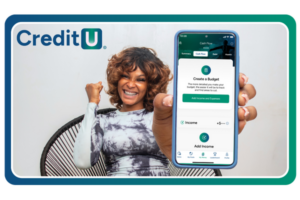Have you received a weird phone call promising riches, vacations or a great business opportunity? There is an extremely high probability that this was a scam. As a non profit credit counseling agency, ACCC wants to make sure you can protect yourself and your finances. Learn how to identify and avoid phone scams to stay out trouble.
Learn to Avoid Phone Scams & Their Consequences
Unfortunately, there are many very convincing scams out there. The consequences usually involve identity theft and personal credit card debt. Knowing how to avoid phone scams is one of the best ways to protect yourself. It’s like playing defense. Once you are aware of the clues, you can identify a scam and hang up immediately.
Generally speaking, anything that is too good to be true will be! You should also never give out personal information over the phone unless you are absolutely sure of the source. If you are unsure, just ask for a number to call back. This usually scares off the person on the other end; or they will try and keep you on the line. It’s also important to keep other family members aware of the scams circulating- especially older Americans who are targeted more frequently.
If you find yourself the victim of a scam, it’s important to act immediately. Learn the steps in this article about reporting identity theft.
FTC List of Phone Scams
The FTC keeps track of current phone scams as they get reported and investigated. Then, they release their findings to the public. Here are some of the scams to avoid.
- Travel Packages. “Free” or “low cost” vacations can end up costing a bundle in hidden costs. Some of these vacations never take place, even after you’ve paid.
- Credit and loans. Advance fee loans, payday loans, credit card protection, and offers to lower your credit card interest rates are very popular schemes, especially during a down economy.
- Sham or exaggerated business and investment opportunities. Promoters of these have made millions of dollars. Scammers rely on the fact that business and investing can be complicated and that most people don’t research the investment.
- Charitable causes. Urgent requests for recent disaster relief efforts are especially common on the phone.
- High-stakes foreign lotteries. These pitches are against the law, which prohibits the cross-border sale or purchase of lottery tickets by phone or mail. What’s more, you may never see a ticket.
- Extended car warranties. Scammers find out what kind of car you drive, and when you bought it so they can urge you to buy overpriced — or worthless — plans.
- “Free” trial offers. Some companies use free trials to sign you up for products — sometimes lots of products — which can cost you lots of money because they bill you every month until you cancel.
Quick Tips to Avoid Phone Scams
- Ask questions back to the caller to get as many details as possible.
- If they are rushing and putting on a lot of pressure, it’s usually a sign of a scam.
- Keep personal details to yourself.
- Get information in writing before committing any money.
- Do your research on any deals with the state Attorney General’s office or the Consumer Protection Agency.
With these tips and an awareness of some phone scams, you will be more prepared than ever to keep your identity and bank accounts safe from predators.
If you’re struggling to pay off debt, schedule a free credit counseling session with us today.







